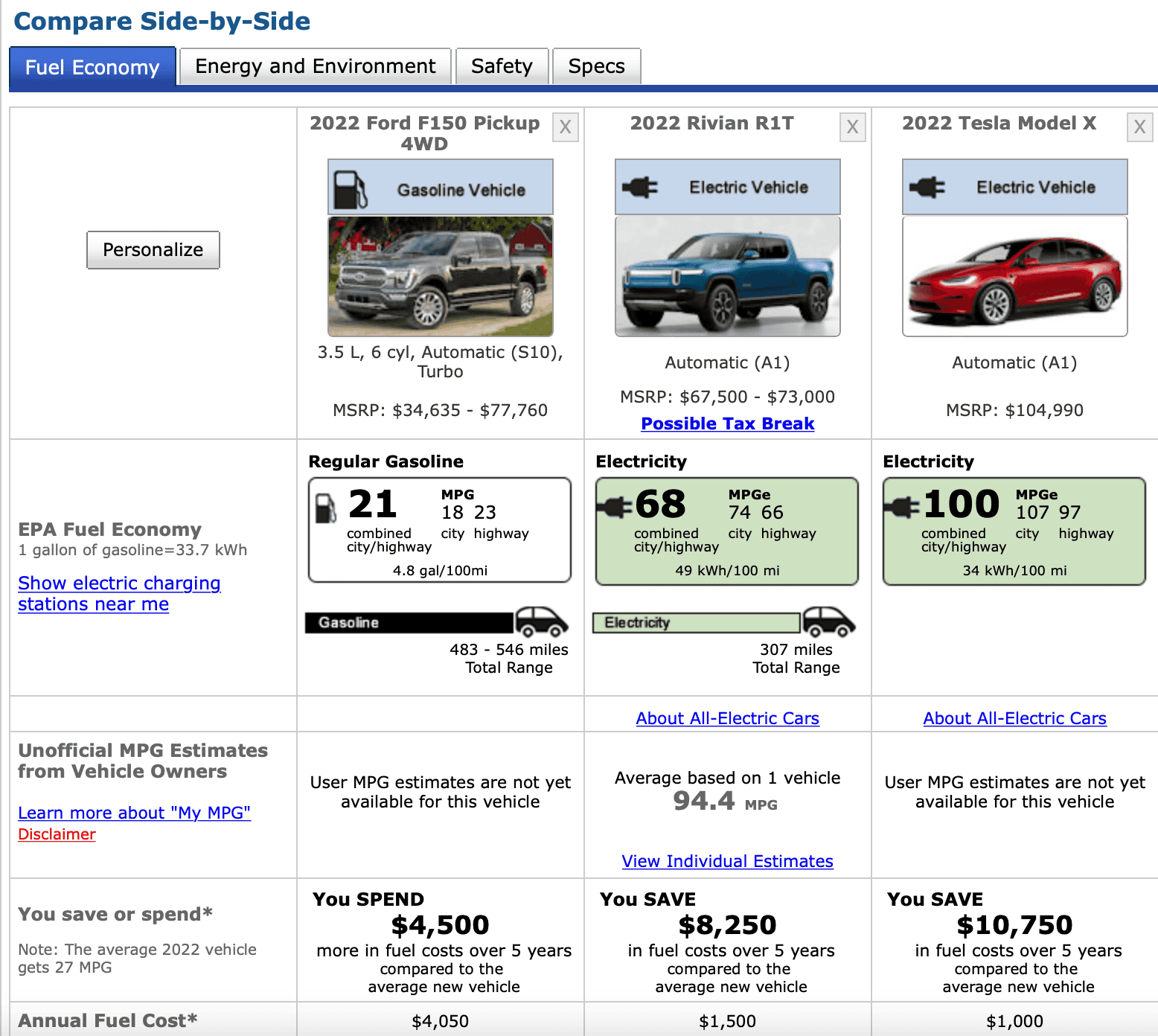EaglesPDX
Well-known member
On the road is still cheaper at $0.31 per kWh. Depends on vehicles efficiency and mpg of ICE comparison. Model 3 is 4 miles per kWh so charging for 250 miles at $0.31 per kWh for 62 kWh, $19.38., $0.08 per mile. Subaru at 32 mph and $4.00 gas would be $0.125 a milePaying to charge (not at home) on the go is usually as bad as gas or worse.
Sponsored


